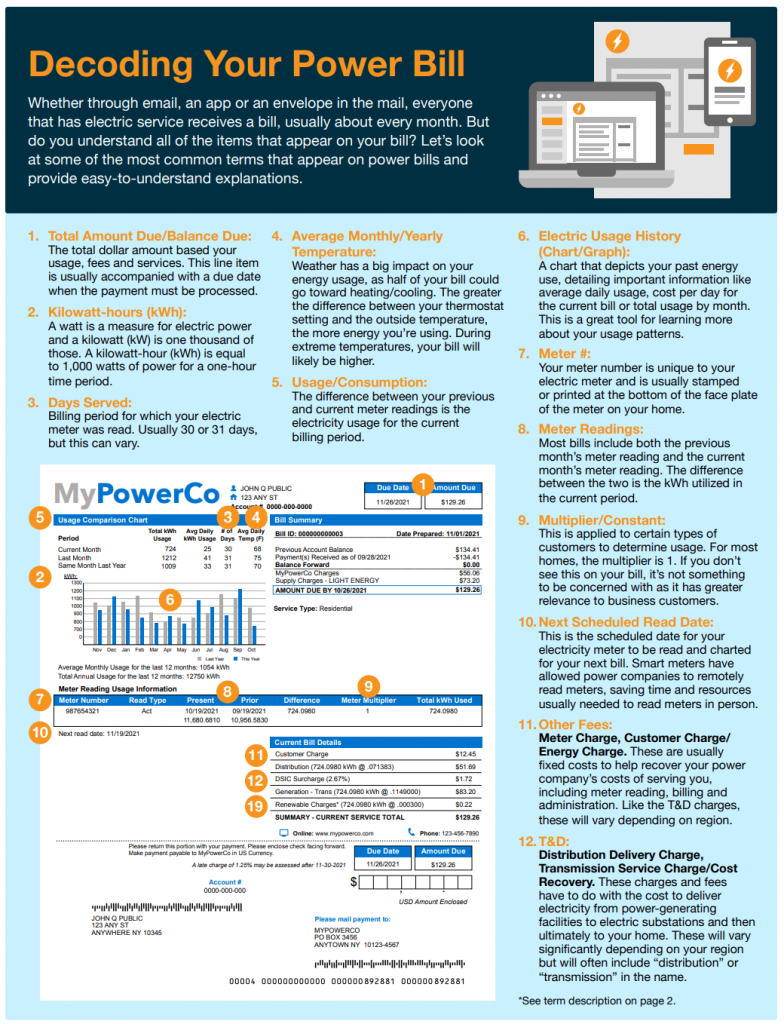Do you pay for power or energy?

Understanding the concepts of power and energy is crucial when it comes to managing your utility bills. Many people often use the terms power and energy interchangeably, but they actually refer to different aspects of electricity consumption. In this article, we will explore the differences between power and energy, how they are measured, and how they impact your billing. Let's dive in!
What is Power?
Power is the rate at which energy is used or transferred. It is the amount of energy consumed or produced per unit of time. In simpler terms, power is the speed at which electricity flows through a circuit. It is measured in watts (W) and is represented by the symbol "P".
What is Energy?
Energy, on the other hand, is the total amount of work done or the total amount of electricity consumed over a given period of time. It is the capacity to do work or produce heat. Energy is measured in kilowatt-hours (kWh) and is represented by the symbol "E".
How is Power Measured?
Power is measured using a device called a wattmeter. This device measures the electric current flowing through a circuit and the voltage across it. By multiplying these two values, the wattmeter calculates the power in watts. Power can also be calculated by multiplying the voltage and current directly, using the formula P = V x I.
How is Energy Measured?
Energy is measured using an energy meter, commonly known as an electricity meter. This meter keeps track of the total amount of electricity consumed in kilowatt-hours (kWh). It records the energy usage over time and is used by utility companies to determine your billing.
Power and energy are interrelated but distinct concepts. Power is the rate at which energy is used or transferred. In other words, power determines how quickly energy is consumed. To illustrate this, think of a light bulb. The power rating of a light bulb determines how much energy it consumes per unit of time. A higher wattage bulb will consume more energy in the same amount of time compared to a lower wattage bulb.
How is Power Billed?
Power is billed based on the rate at which it is consumed. Utility companies charge customers for the maximum power they have used during a billing period. This is often referred to as the peak demand or demand charge. The higher the peak demand, the higher your power bill will be, regardless of the total energy consumed.
How is Energy Billed?
Energy is billed based on the total amount consumed over a given period, typically in kilowatt-hours (kWh). The energy usage is multiplied by the unit price set by the utility company to calculate the cost. The more energy you consume, the higher your energy bill will be.
Conclusion
Understanding the difference between power and energy is essential in managing your utility bills effectively. While power refers to the rate of energy consumption, energy represents the total amount consumed. Power is billed based on peak demand, while energy is billed based on total consumption. By understanding these concepts, you can make informed decisions to reduce your power and energy costs.
Frequently Asked Questions
1. Do I pay for power or energy?
You pay for both power and energy. Power refers to the rate at which energy is consumed, and energy represents the total amount consumed over a given period. Your utility bill will include charges for both power and energy.
2. What factors determine my power bill?
The main factor that determines your power bill is the peak demand or the maximum power you have used during a billing period. Other factors include the power rate set by your utility company and any additional charges or fees.
3. What factors determine my energy bill?
Your energy bill is primarily determined by the total amount of electricity you have consumed over a billing period. The energy rate set by your utility company and any additional charges or fees may also influence your energy bill.
4. Can I reduce my power and energy costs?
Absolutely! There are several ways to reduce your power and energy costs. Some effective strategies include using energy-efficient appliances, optimizing your energy usage, and implementing energy-saving practices such as turning off lights when not in use and properly insulating your home.

Leave a Reply